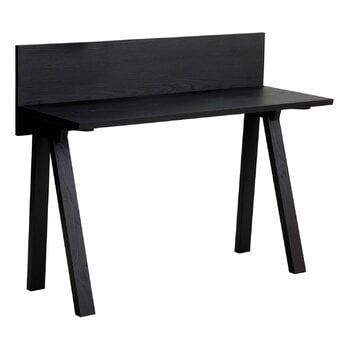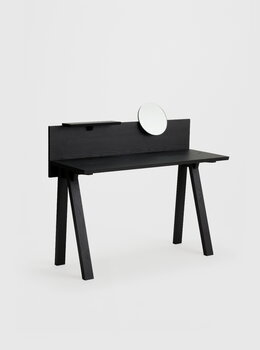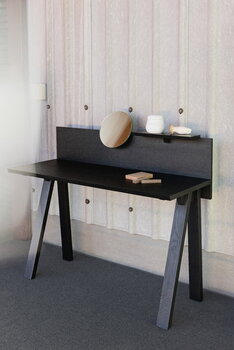Ariake’s Sagyo desk is a Japanese interpretation of a functional and versatile workstation. The Sagyo desk is aptly named: Sagyo is Japanese and means ”work”. The sleek and spare desk, designed by Keiji Ashizawa, can also be used as a vanity for example in the bedroom.
The solid wood Sagyo desk features beautiful sloping legs and a backplate for added peace and privacy. If you like, you can complete the design with a separately sold magnetic shelf and mirror – the small shelf adds convenient storage space above the desk, and the round mirror allows you to use your workstation also as a dressing table.
















